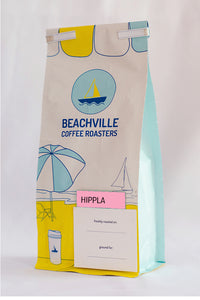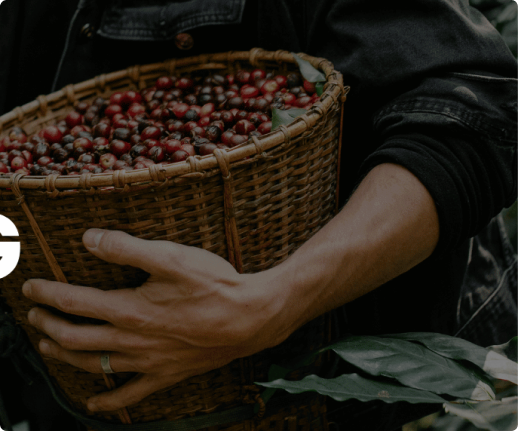A Journey Through the History of Speciality Coffee: Origins, Processes, and Flavour
Coffee has long been a beloved beverage, but the term specialty coffee brings with it a world of craftsmanship, terroir, and flavour that sets it apart from commodity-grade coffee.
The Origins: From the Hills of Ethiopia to the World
The story of coffee begins in the 9th century in the ancient coffee forests of Ethiopia. According to legend, a goat herder named Kaldi noticed his goats became unusually energetic after eating the red cherries from a particular plant. Curious, Kaldi sampled the fruit himself and discovered its invigorating effect.
From Ethiopia, coffee spread to Yemen, where Sufi mystics used it to stay awake during long prayers. It was here that the first evidence of coffee being brewed from roasted beans appeared, and the drink became known as qahwa. By the 15th century, coffee had spread throughout the Arab world, becoming an integral part of social and religious life. The port of Mocha in Yemen became synonymous with high-quality beans. From there, coffee travelled to Turkey, Persia, and North Africa, eventually reaching Europe in the 17th century.
Pioneering Specialty Coffee in India: The Beachville Story
India has a rich legacy of coffee cultivation dating back to the 17th century, but for much of its modern history, Indian coffee was either exported as commodity-grade or consumed in its most traditional form—filter coffee.
In 2015, long before "speciality" became a buzzword, Beachville Coffee Roasters began roasting in Chennai with a singular mission: to put India on the global speciality coffee map. Beachville pioneered concepts like sourcing micro- and nano-lots and experimental estates all over India, introducing Chennai to pour-overs, AeroPress brews, and single-origin espressos, conducting public coffee tastings, cuppings and workshops to spread coffee education, and building direct partnerships with growers, focusing on transparency and quality. Today, Beachville continues to push the envelope with fermentation-led profiles, house roasting innovations, and an immersive café experience that celebrates every cup.
Processing Methods: From Cherry to Cup
How a coffee cherry is processed after harvest is critical to the flavour of the final cup. Processing influences the chemical composition of the bean, the microbial environment during fermentation, and the drying speed – all of which affect sweetness, acidity, mouthfeel, and aroma. Even beans from the same estate can taste vastly different depending on how they were processed.
1. Washed (Wet) Process: Clean, bright, and acidic flavour profile
Typical Flavours: Citrus, floral, tea-like
2. Natural (Dry) Process: Sweet, fruity, heavier-bodied cup
Typical Flavours: Blueberry, strawberry, chocolate
3. Honey (Pulped Natural) Process: Balance of body and clarity
Typical Flavours: Caramel, red fruit, spices
Different microbial activity during fermentation, drying time, and exposure to air create unique precursors for flavour. As a result, experimental processing methods like anaerobic and carbonic maceration are becoming increasingly popular for their ability to amplify complexity and create distinctive profiles.
How Coffee is Scored and Graded
To be classified as "specialty coffee", green coffee beans must score 80 points or more out of 100 according to the Specialty Coffee Association (SCA) protocol.
Professional Q-graders assess beans through a process called cupping, evaluating key attributes:
Fragrance/aroma
Flavour and aftertaste
Acidity and body
Uniformity and cleanliness
Sweetness and balance
Each defect-free sample is scored on a detailed cupping form, and beans must also be free of major defects and exhibit consistent roasting potential. Higher scoring coffees (e.g., 86+) are often from micro-lots or nano-lots and are prized for their distinctiveness.
Flavour Profiles: A Symphony of Terroir and Craft
The concept of terroir refers to how soil, altitude, and climate affect the coffee's growth.
Once harvested, the next step is the roasting style. For example, light roasts retain origin characteristics and acidity, medium roasts yield balanced flavour proviles, and dark roasts produce bold, chocolatey notes which can mask origin flavours.
In terms of brewing method, pour-overs are preferred for clarity and brightness, espresso and the south indian filter are suitable for for intense, syrupy coffee "shots", the full immesion french press can be suitable for fuller body, and cold brew is great for smooth, mellow cups.
Speciality coffee is about quality, ethics, and sustainability. It celebrates farmers, supports traceability, and encourages eco-conscious practices. In India, it means recognising the full potential of Indian-grown beans.
Make Every Coffee Special: The Beachville Way
At Beachville Coffee Roasters, we are honoured to be part of this journey. Since 2015, we’ve been quietly and consistently championing specialty coffee in India—sourcing boldly, roasting with purpose, and brewing with heart. Whether you're a home brewer or just beginning your coffee journey, we invite you to join us in discovering coffee the way it was meant to be: vibrant, flavourful, and full of story. Explore our coffees. Visit our café. Or simply start a conversation. Every sip matters.




